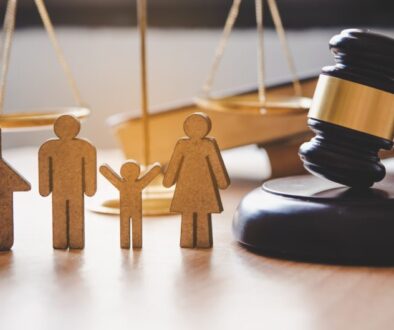Who claims children for tax purposes?
Who claims children for tax purposes?
You can find the Illinois Marriage and Dissolution of Marriage Act at 750 ILCS 5/. This statute also applies to cases involving children where the parents have not been married. This is a basic overview of family law in Illinois. You should consult an attorney to discuss how the law applies to the facts in your case.
What does your accountant say?
Your accountant will probably tell you that if you have the kids for the majority of the time, then you can claim them for tax purposes. They are not wrong. That is what the IRS says to do. However, you must use this information in conjunction with Illinois law if you have a family court order such as a divorce decree or parenting order. If you have a pending family court case and there is no order regarding taxes in place, you should consult with your attorney.
What does the family court judge say?
Illinois law provides as follows, “Unless a court has determined otherwise or the parties otherwise agree, the party with the majority of parenting time shall be deemed entitled to claim the dependency exemption for the parties’ minor child.” 750 ILCS 5/505(a)(1)(2)(B)(I).
This law gives the judge the authority to decide who will claim the children for tax purposes. Typically, judges will consider the amount of time each parent has with the children and the amount of child support and child expenses paid by each parent, when deciding who will claim the children. If the judge believes both parents are contributing approximately equally after considering these factors as well as other relevant factors, she will likely distribute the tax dependency between the parents. For example, if there is one child, the parents might take turns claiming him. If there are two children, the parents might each claim one. Then if there are three, they might each claim one and alternate the third and so on.
My order splits the exemptions, but my accountant said there are no longer exemptions. Can I claim all the kids now?
Orders entered before 2018 may allocate the tax exemptions for children to a parent. The federal Tax Cuts and Jobs Act did away with dependent exemptions and brought in the tax credits. You should seek clarification with the court. Some judges have interpreted the tax dependency exemption to include the tax credit. Others have not. It may also depend on the precise wording in the court order.
What if I claim the kids when it was not my turn according to the court order?
In this circumstance, your taxes may be accepted by the IRS. But, you may be found in contempt of the Illinois family court. Penalties for contempt might include paying attorney’s fees, penalties, accountant fees, and even incarceration.
Contact us if you are facing a family law issue. We have the knowledge and experience to vigorously fight for you.
Content contained on this site is for informational purposes only and should not be considered legal advice. You should consult an attorney of your choosing to discuss your particular case and to obtain legal advice specific to your situation.




